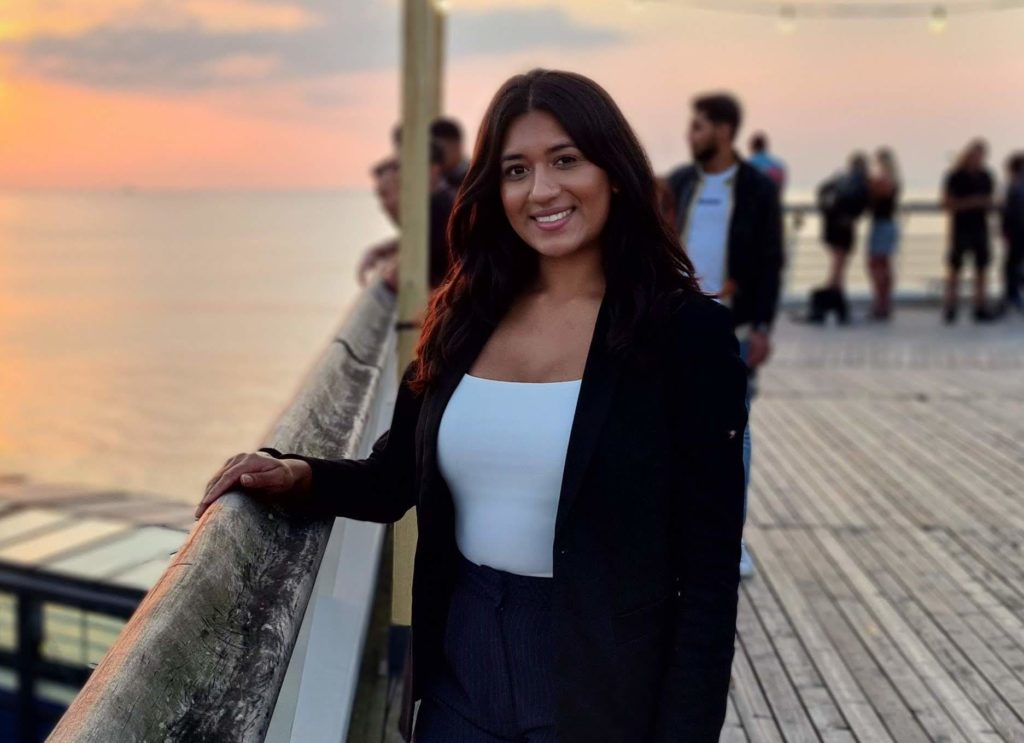As the academic year is starting, RECEIPT is writing another chapter in its “yearbook” introducing our younger “classmates”. Meet Sadhana Nirandjan who works in The Hague at the Institute for Environmental Studies of the University of Amsterdam. Hikes with nice views, exploring new food and basketball; Sadhana’s hobbies are as diverse as the topic she studies!

What I do
For RECEIPT, I specifically focus on risks of coastal flooding to European critical infrastructure. Critical infrastructure, such as power plants, roads, and communication masts, provide services that are essential for the day-to-day functioning of society. Their disruption can seriously affect our day-to-day life and propagate into widespread economic consequences.
I have developed the Critical Infrastructure Spatial Index (CISI) to map critical infrastructures at the global scale. I’m now working on estimating direct damages to assets.
How I got here
I have always had a strong interest in the interaction between mankind and the environment. I recently found several homework assignments I wrote in primary school. For almost each assignment I would pick an ecosystem as my main topic, for example, rainforests or the marine ecosystem. When the 2004 Indian Ocean earthquake and tsunami occurred, I was only 9 years old and get really moved by the devastating impacts natural disasters can have. I collected money in my neighbourhood and donated it to an aid organization. I believe this was when I realized that I wanted to learn more about the impacts of natural hazards on society, but also how society impacts the environment and climate. My education and career decisions since have always followed that trajectory.
Where I’m going
I definitely see myself still working on the topic of natural hazard risk in five years. However, I don’t know if that will be in academia or in industry, the future will tell!
Also, this
Although it is not my area of study, I’m very interested in the topic of “free will”. From ancient Greece philosophers to modern neuroscientists and psychologists, people are always seeking an explanation for why we do what we do. It intrigues me a lot!
Published on : 08 September 2021
